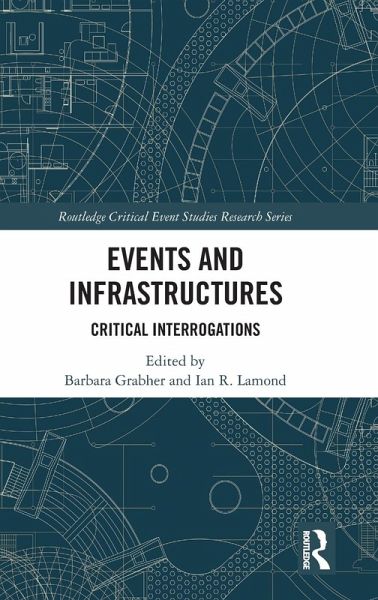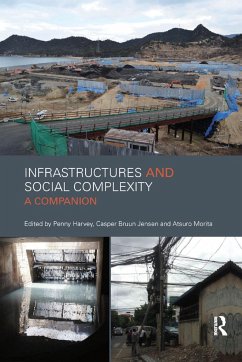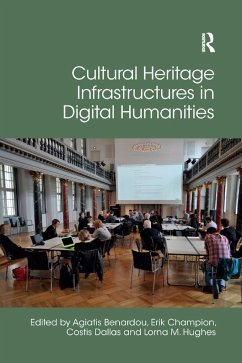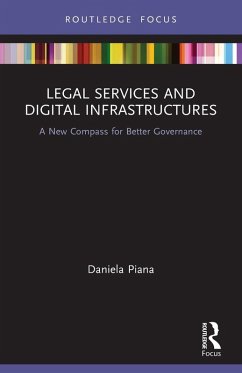
Events and Infrastructures
Critical Interrogations
Herausgegeben: Grabher, Barbara; Lamond, Ian R.
Versandkostenfrei!
Versandfertig in 6-10 Tagen
154,99 €
inkl. MwSt.

PAYBACK Punkte
77 °P sammeln!
Innovative and the first of its kind, this informative and multidisciplinary book explores the socio-cultural significance inherent in event infrastructures.While mainstream event management literature addresses event infrastructures mainly through its operational relevance, this carefully compiled edited volume takes infrastructures as an analytical point in respect to its social, political, economic and cultural potential of the study of events. Borrowing from the ongoing social scientific debates on the geography, sociology and anthropology of infrastructures, critical questions are posed i...
Innovative and the first of its kind, this informative and multidisciplinary book explores the socio-cultural significance inherent in event infrastructures.
While mainstream event management literature addresses event infrastructures mainly through its operational relevance, this carefully compiled edited volume takes infrastructures as an analytical point in respect to its social, political, economic and cultural potential of the study of events. Borrowing from the ongoing social scientific debates on the geography, sociology and anthropology of infrastructures, critical questions are posed in relation to the event contexts. With references to events in Argentina, Malawi, Spain and the UK, among others, the volume combines an international perspective with a highly relevant subject for contemporary event management education.
By bringing together theoretical as well as empirical readings on the question of event infrastructures from a critical point of view, the debates are relevant to practitioners and researchers as well as undergraduate and postgraduate students in the field of events, leisure, tourism, anthropology, sociology, geography and urban planning - among others.
While mainstream event management literature addresses event infrastructures mainly through its operational relevance, this carefully compiled edited volume takes infrastructures as an analytical point in respect to its social, political, economic and cultural potential of the study of events. Borrowing from the ongoing social scientific debates on the geography, sociology and anthropology of infrastructures, critical questions are posed in relation to the event contexts. With references to events in Argentina, Malawi, Spain and the UK, among others, the volume combines an international perspective with a highly relevant subject for contemporary event management education.
By bringing together theoretical as well as empirical readings on the question of event infrastructures from a critical point of view, the debates are relevant to practitioners and researchers as well as undergraduate and postgraduate students in the field of events, leisure, tourism, anthropology, sociology, geography and urban planning - among others.














